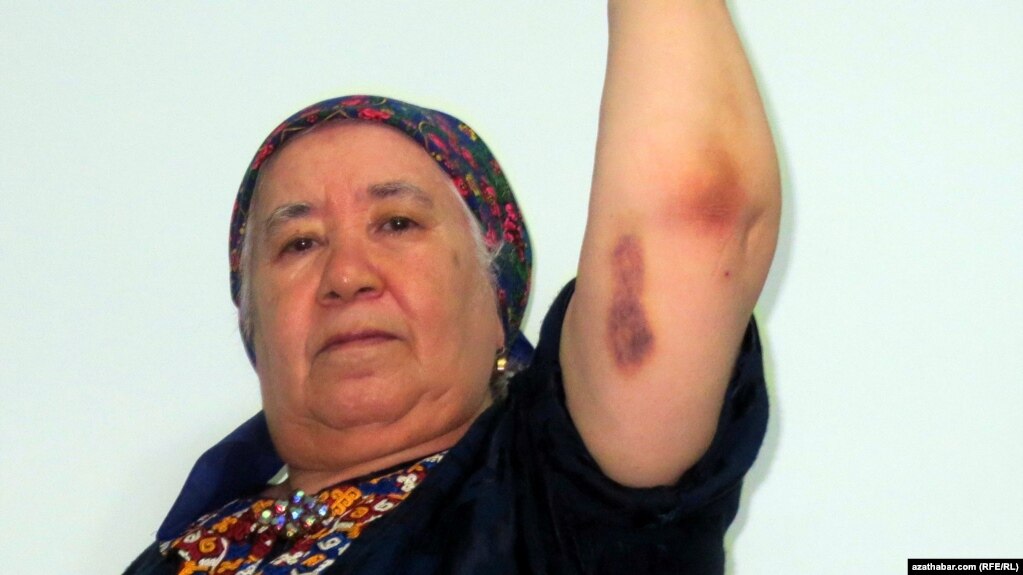Journalist Suffers Repeat Attack In Turkmenistan

WASHINGTON — RFE/RL Turkmen correspondent Soltan Achilova has been assaulted a second time, following an attack last month that rights advocates said was an attempt to silence her reporting.
Achilova, 67, was in a rehabilitation center near Archman, northeast of the capital, Ashgabat, for health reasons on November 8 when two women approached her in the cafeteria, yelling “This is the one who takes pictures and pours dirt on Turkmenistan.” Earlier that evening, in an attack Achilova believes was meant for her, an elderly woman staying in the same facility was knocked to the floor by two unknown women who shouted while beating her, “This is for your taking pictures.”
The attack came one day after Human Rights Watch issued a statement decrying an October 25 assault on Achilova, saying “Achilova’s ordeal was clearly yet another orchestrated attempt to silence a critic.”
“There is every indication that these are deliberate attempts to punish our correspondent for doing her job in Turkmenistan,” said RFE/RL President Thomas Kent. “These attacks violate Turkmenistan’s international obligations and its own constitutional commitments to respect independent media, and as such must be immediately condemned by the government and stopped.”
Achilova was questioned by four police officers and threatened with arrest after taking photos of long queues at a state-owned store in the capital city Ashgabat on October 25. After she was released by police several hours later, three men and a woman in plain clothes caught up with her, demanded she delete all the photos, and then attacked her, snatching her bag and her camera away.
Achilova’s mobile phone has not worked and she’s had no Internet connection since last week’s attack.
Attacks on RFE/RL correspondents in Turkmenistan, one of the world’s most closed societies, have intensified over the past two years. Saparmamed Nepeskuliev, a video journalist who contributed to the Turkmen Service, was sentenced to three years in prison in September, 2015 on narcotics charges that rights advocates believe were fabricated and brought in retaliation for his images capturing economic hardship and crumbling infrastructure in the country’s western region. In December 2014, Achilova was questioned by unidentified men in civilian clothing under circumstances similar to those of this latest incident, as she interviewed people waiting to purchase fresh meat that had suddenly became available in shops around the country.